Tosh Berman's Blog, page 190
November 20, 2015
November 19, 2015
Event: Who Is She?—Terry Braunstein | Long Beach Museum of Art
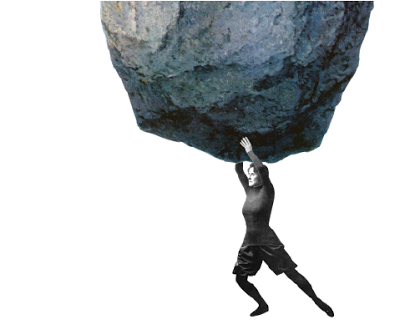
Event: Who Is She?—Terry Braunstein | Long Beach Museum of Art
i'm proud to contribute an essay/story to the catalog for Terry Braunstein's exhibition that will take place at the Long Beach Museum of Art. See the show and for god's sake, buy the book as well!
Published on November 19, 2015 07:54
November 18, 2015
"Who is She" Terry Braunstein (Thistle & Weed Press)
ISBN: 978-0-9855767-0-7 Limited Edition
"Who is She? Terry Braunstein" Essays by Tosh Berman and Claudia Bohn-Spector with an introduction by Ron NelsonPublished by Thistle & Weed Press, South Pasadena, CA
Published on the occasion of the exhibition of the same name organized by he Long Beach Museum of Art, Long Beach, CA
"Who is She? Terry Braunstein" Essays by Tosh Berman and Claudia Bohn-Spector with an introduction by Ron NelsonPublished by Thistle & Weed Press, South Pasadena, CA
Published on the occasion of the exhibition of the same name organized by he Long Beach Museum of Art, Long Beach, CA
Published on November 18, 2015 13:55
Jean Boullet and Boris Vian
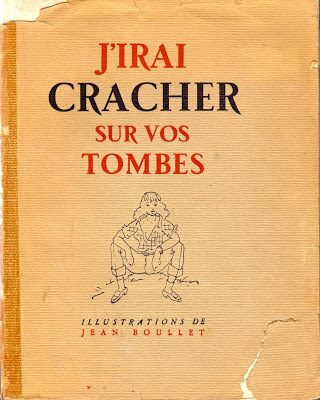
For some years now, I have been trying to locate this special limited edition of "J'irai cracker sur vos Tombes (I Spit on Your Graves) by Boris Vian, and illustrated by Jean Boullet. Very hard to find. At one time, I wanted to republish "I Spit on Your Graves" with the original illustrations. At the moment, I can't do this. Still, I would love to actually see this edition.
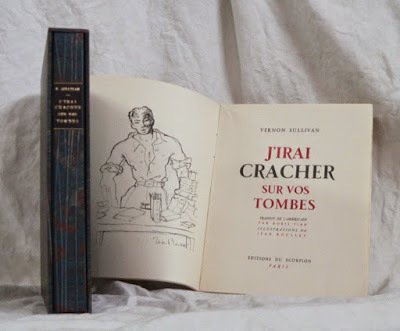
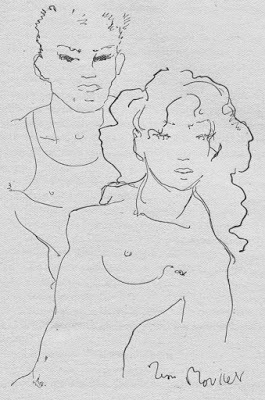
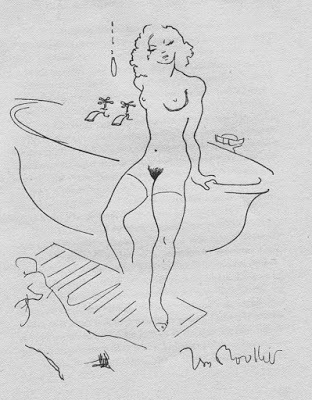
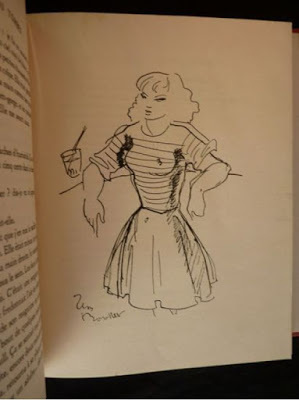
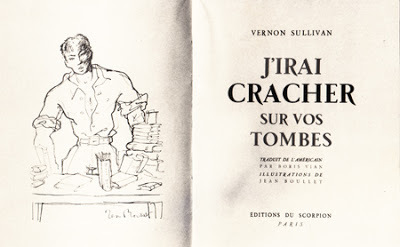
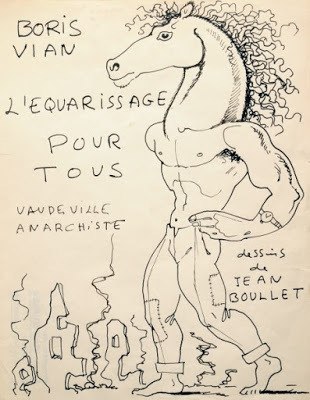
If anyone knows the relationship between Boris Vian and Jean Boullet, do let me know!
- Tosh Berman
Published on November 18, 2015 11:24
November 17, 2015
"Brigid Berlin Polaroids" (Edited by Dagon James, Vincent Fremont, & Anastasia Rygle. Foreword by John Waters. Introduction by Bob Colacello) Reel Art Press
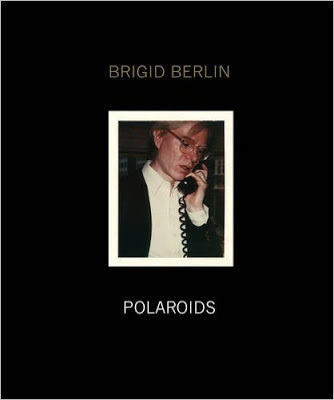 ISBN: 9781909526242 Reel Art Press
ISBN: 9781909526242 Reel Art Press"Brigid Berlin Polaroids" by Brigid Berlin (Edited by Dagon James, Vincent Fremont, & Anastasia Rygle. Foreword by John Waters. Introduction by Bob Colacello) Reel Art Press
Brigid Berlin, sometimes known as Brigid Polk, is famous for being associated with Andy Warhol and his Factory world. The great thing about the Warhol world, generally speaking, is how talented the people that he connected himself with - If not all, most are border-line genius types. Berlin I think is a member of that club, due to her talents with a Polaroid, but also the ability to live in the right place and time.
As Bob Colacello pointed out in his introduction to this book, Warhol is very much a blue collar type of character who liked to run with the wealthy. On the other hand, Berlin is part of an upper-class Republican life, with her parents being associated with Richard Nixon and others of that world. This, of course, made her into a rebel. Drug Addict (speed), and a woman who had no trouble eliminating her clothing when a camera came by, is something of a great wit. The beauty of someone like Berlin is that she's a total open book, and allowing herself to absorb the world around her, without much filter, shame or fear. Warhol surrounded himself with either very brave people or total psychotics - or perhaps both. In a sense, Berlin and others would dip their toes into the fire, and then report back to Warhol.
"Brigid Berlin Polaroids" is a beautiful time-capsule from the late 1970s to the early 1980s. The height of the third act in Warhol's life and career. The first being his career as a graphic artist in New York City, second is the early years of the Campbell Soup & Elvis paintings, as well as his avant-approach to film making, with an insane cast of characters. The third segment is what Brigid captured in these photographs. "Post-Warhol-getting-shot" life as he shifts direction from crazy dangerous landscape to a somewhat much more organized world. Berlin was part of both worlds, and I think clearly was made to assist Warhol in the Third Act of his life.
Although one has to presume that Berlin had to take these images quickly, and without much thinking, proves to be a fantastic and skilled photographer or again, has the genius ability to be the right person doing the right thing at that moment. Her portraits of individuals in the art world as well as people around the Factory environment is superbly framed and are exquisite portraits of these people. She didn't ask permission to shoot, and it seems no one said anything about either being the subject matter of the shoot, or what will be done with the image afterwards. Brigid was capturing the moment as it happened, and only thinking of the present at the time. The beauty of the polaroid is that it was something of that instant, and not meant to be fussed over or over-thinking on the photographer's part. Almost like an artist's notebook of ideas, but the truth is, Berlin knew how to take a great picture of someone. Although I think these photographs were done in relaxed moments, they are still classic portraits of the subject matter. There is not one bad portrait of anyone looking bad. Including her self-portraits in the nude (at times) and the revealing images of Andy Warhol.
The Alice Neel / Warhol polaroid photo session was taken while Warhol agreed to pose without his shirt on, exposing his horrible scars from the shooting. Neel painted his portrait, and Berlin captured both the model and the painter at work. It's a revealing series of photos, due to Warhol's obsessively sense of uniform, meaning his wig, and the sensibility of his body's limitations. I don't think Warhol is the type of guy who is comfortable being in the nude or in front of a camera. He accepts it for what it is, but I feel he's more comfortable behind a camera than in front of the lens. Even in specific photo shoots, such as him in drag (by Chrisatopher Makos) or doing TV commercials - he never looks at ease being the subject matter of someone else's observations or the placement of him in front of attention. He is truly a living tape and camera recorder, and so is Brigid Berlin in this book.
"Polaroids" is a beautiful production job of a book. The editing is superb, and Berlin's polaroids are totally suitable for an exhibition as well as for this book. Not only documenting an important time in the arts, but also herself being an artist and photographer. She's really good.
- Tosh Berman
Published on November 17, 2015 17:02
November 16, 2015
"Up The Junction" by Nell Dunn
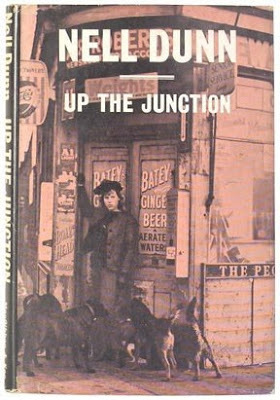
"Up the Junction" by Nell Dunn
Reading Nell Dunn's collection of short stories "Up The Junction" is like being buried in a coffin full of 12''' Smiths record covers. One can taste the lukewarm cream tea or a dark bitter right off the page. For me, what these stories, published in 1963, do is tell the tale, because of the rich London language and accents. I know nothing of Dunn's life or where she came from, but I read that she came from a higher class, and chose to live in Battersea and Clapham Junction, which at the time of these stories was a total working class area of London. "Up The Junction" is very location orientated, and through Dunn's eyes and writing, one gets the harsh life of its citizens who live in those two areas of London.
Sex runs through these narrations of women and guys on the make, but it is not exactly 'happy' sex or even 'sexy' sex, but more of a way of passing time between working, and doing a touch of crime. Without a doubt, a great London book, that is far away from the world of PG Wodehouse as possible. Some of the images are shocking, for instance an aborted baby flushed down the toilet, but I don't feel it was done for shock purposes, but almost a journalistic touch.
There is a lot of music in the background as well. Before the Fab Four made their appearance, here you get snippets of pre-beatle pop lyrics with a mixture of American soul. There's work, but then there is dancing, which becomes a mating call of sorts. Without a doubt, "Up The Junction" is the largest and most intense "kitchen sink realism" set of stories ever.
- Tosh Berman
Published on November 16, 2015 16:31
"Talk" by Linda Rosenkrantz (Introduction by Stephen Koch) NYRB
 ISBN: 978-1-59017-844-7 NYRB
ISBN: 978-1-59017-844-7 NYRB"Talk" by Linda Rosenkrantz (Introduction by Stephen Koch) NYRB
New York Review of Books (NYRB) is brilliant in that they re-issue titles that somehow fell between the cracks of memory and acceptance. "Talk" by Linda Rosenkrantz is a very unusual "novel" in that it is a book that consist only of dialogue, and nothing else but a dialogue. Rosenkrantz took her tape recorder and taped her friends chatting away about sex, drugs, food, and the slippery subject of happiness. Originally she had 25 characters, but then edited it down to three characters, who are the voices in "Talk." Immediately one can think of Andy Warhol' s"novel," "A," but this is actually a book that is edited more than written. The commentary from all three participants in "Talk" is very pointed and beautifully stated (written).
The book (I'm not sure if this is technically a novel) took place in East Hampton in 1965. Vincent, a gay painter, Emily, perhaps an alcoholic as well as an actress, and Marsha, who I suspect is our author. Throughout the book, either on the beach, or in the kitchen, they discuss their sex lives, and the meaning of friendship between the trio. There are sexual tensions between Vincent and the girls, as well as commentary of fellow friends who not actually appear in the book as conversationists.
Since it is 1965, and Rosenkrantz and Vincent are very much part of the Manhattan art world, there are galleries mentioned as well as Andy Warhol. They are mostly passing figures, in which the dialogue is totally devoted to how Emily thinks of Vincent and Marsha, how Marsha thinks about Emily and Vincent, and of course, how Vincent feels about Marsha and Emily. One doesn't get the nitty gritty aspect of Manhattan life, except I feel that these three people are on an island by themselves. It's a fascinating document as well as a literary document of a time that has passed, yet seems very contemporary.
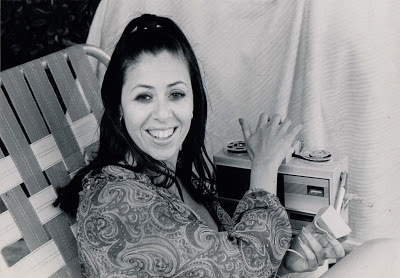 The author with her tape recorder. Photos: James Dugdale
The author with her tape recorder. Photos: James Dugdale
Published on November 16, 2015 10:45
November 15, 2015
The Sunday Series: Sunday November 15, 2015
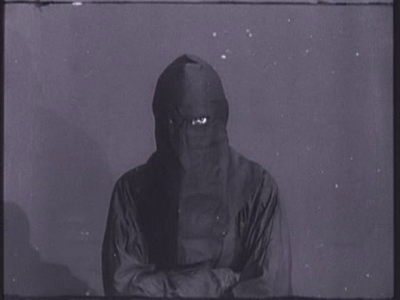
The Sunday Series
Sunday November 15, 2015
“Fantômas. What did you say? I said: Fantômas. And what does that mean? Nothing…Everything! But what is it? No one…And yet, yes, it is someone! And what does this someone do? Spreads terror! ”
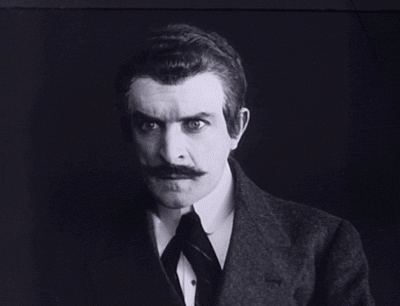
The Lord of Terror called out to me by sending his calling card to my home, which doesn’t have an official address. Once I opened the envelope, and saw the card with the name “Fantômas” on it with an address where I am supposed to meet him, the ink eventually dissolves and I’m just left with a blank white card. I left my quarters and walked towards the address he sent me, which is the Cirque d’hiver in the 11th arrondissement. I was told to wait by the front entrance of the theater.
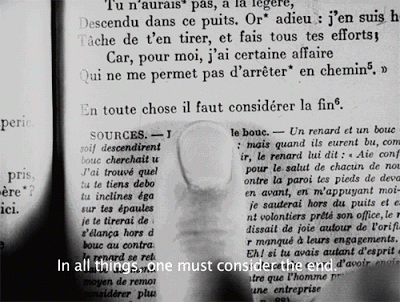
Oddly enough, I heard a great deal of police sirens in the night air, but didn’t see anything. The street was also deserted with very little traffic. From the distance, I saw what looked like un old woman hunched over, dragging a suitcase with wheels on rue Amelot, heading towards me. As she walked by me, I tipped my hat towards her direction and didn’t think nothing more of her. As I was looking in the other direction I felt a tap on my shoulder, and it was the woman. She pulled my head toward her lips and kissed me. She then said, “Follow me to the inside of the theater, and take my suitcase.” I was first struck that she kissed me, and second, she has a rather masculine voice. As I followed her from the behind, I noticed each step she took, she got taller. The blouse was thrown by the side, as well as the skirt, which left a male figure in a tight black silk body suit. He opened the door, and we both entered the empty and very dark theater. A small light from his flashlight came on, and what appeared in front of me was Fantômas, wearing a dark hood, that matched perfectly with the rest of his clothing. There were only two holes in the hooded mask for his eyes, and he said to me “In all things, one must consider the end.”
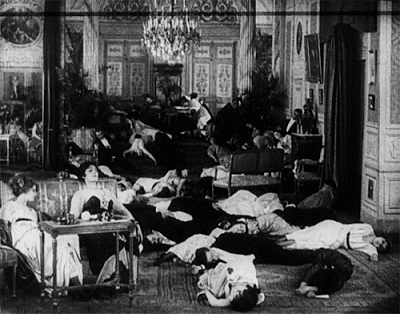
One is always encouraged to go from the beginning to a middle, and all hopes, an end. Narration, like time on a digital clock, are factual points, where one reflects on the direction and how long they should spend on obtaining that destiny. The reason I follow Fantômas, is because there is no time, destination, or narrative. He brings grief and destruction to allow space that throws off a direction of a narrative. To be totally free from a restricted life, with no adventure or a world with meaning, is to be a leaf in a typhoon storm.
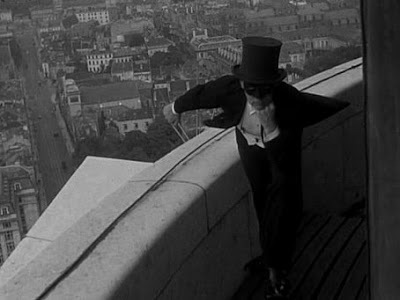
Fantômas’ genius is the ability to look at a culture, as if it was a map on a work-table. He knows exactly where to disrupt or attack, which will cause a bigger effect in the end. The map to get to the end, is a street full of detours and badly made roads. Logic thrown aside, because we can, is the object of our desires. Fantômas pulls me closer, and gives me instructions into my ear. He then takes my shoulders, and directs me to a specific direction. I go into the night.
Published on November 15, 2015 12:51
November 12, 2015
"An Invitation for Me to Think" by Alexander Vvedensky (Translated by Eugene Ostashevsky & Matvei Yankelevich)
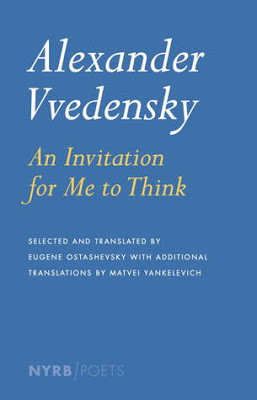 ISBN: 978-1-59017-630-6 NYRB/Poets
ISBN: 978-1-59017-630-6 NYRB/Poets"An Invitation for Me to Think" by Alexander Vvedensky (Selected and translated by Eugene Ostashevsky. Additional translations by Matvei Yankelevich) NYRB
For me, poetry is the end result of when thought meets language. A poem can express many things, but for my taste, I have always attached to poems that express something that is not here, or there, but somewhere in-between. Avant-garde poetry to me is the ultimate adventure, or a journey without a map. Like rock n' roll produced in Sun Studios in Memphis in the mid-1950s, I feel like I'm getting the real thing, when I read poetry that was produced in the early part of the 20th century. The "new" was not only modern, but "now" as well. It is like the full first kiss or tasting the avocado for the first time. It can never be better that the initial approach. This is how I feel when I read Alexander Vvedensky's (Алекса́ндр Ива́нович Введе́нский; 1904–1941) poetry for the first time.
It's fascinating how poetry can be so dangerous in a society such as Russia for instance. I can understand if Stalin felt threatened by someone saying "Down with Stalin," but when a poet like Vvedensky writes "snow lies/earth flies/lights flip/to pigments night has come/on a rug of stars it lies/is it night or a demon?" Well, it doesn't sound right! So we might as well as arrest this poet.
Alexander Vvedensky was a member of OBERIU, an early Russian avant-garde group that was similar to DADA and the Futurists. The Stalin world craved an art that is easily understood and therefore much more controllable. Alas, the avant-garde played with literature and the visual art as a motor of sorts, to spurn out desire, humor, and a sense of playfulness that went against the Soviet sense of the aesthetic. Vvedensky basically died due that he was a poet of great imagination and wit. As of now, we know he was shipped to Kazan and died of pleuritic on that train trip. Where he is buried is unknown. Along with his fellow playmate and poet/writer Daniil Kharms, his work was saved by Yakov Druskin, and though many years later, we now have at least a good example of his writing. "An Invitation for Me to Think" is a sample of this wonderful poet's work.
When one reads the poetry, the reader doesn't think of it as a work of political thinking, yet, sometimes the landscape surrounding the poet makes their lives very difficult. It is interesting that both Kharms and Vvedensky wrote numerous works for children. While reading this book, I often thought of its rhymes and the way the words are expressed seemed to be in a sing-song style of poetry written for children. Perhaps the sophistication of the words, and how it is told, is what's dangerous in that world at the time. It is also interesting that Pussy Riot has commented on the works of OBERIU as an example of freedom of doing one's art. They quote Vvedensky as saying "It happens that two rhythms will come into your head, a good one and a bad one and I choose the bad one. It will be the right one." Which to me is art in a nutshell. Stalin didn't get it, but then again, he doesn't seem to be a man of great humor and appreciation of the enlightened poet.
- Tosh Berman
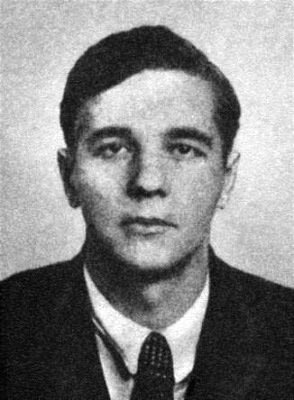 Alexander Vvedensky
Alexander Vvedensky
Published on November 12, 2015 21:17



